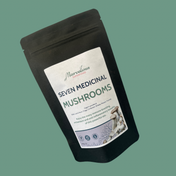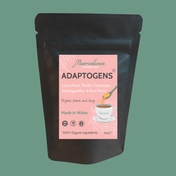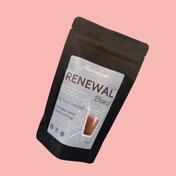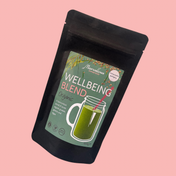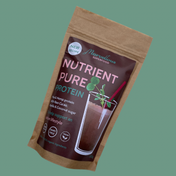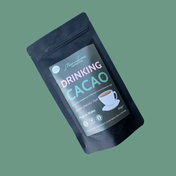By Wanda Ra Freeman
Sauerkraut and other fermented vegetable products offer a range of health benefits that aren’t often mentioned on the nutrition label. It’s full of probiotics, which improve gut health and immunity.
The tangy slaw is also a good source of antioxidants, vitamins, and minerals. It’s low in calories and high in fibre. You can buy raw unpasteurised sauerkraut from whole food shops or follow my recipe below.
Probiotics
Sauerkraut, or sour cabbage, is one of the most probiotic-rich foods you can eat. It’s an easy and healthy way to get your recommended amount of probiotics – and it can even boost your immune system!
The good bacteria in sauerkraut have been shown to boost your digestive health. They keep the lining of your gut healthy and help prevent inflammation. In addition, they protect you from infections like the common cold and urinary tract infections.
Two main factors determine the growth of probiotics in sauerkraut: time and temperature. The longer the cabbage is left to ferment, the more Lactobacilli it will produce. A minimum of 16 days is recommended when making sauerkraut in order to obtain maximum probiotic benefit.
In addition to helping you get the right amount of probiotics, sauerkraut is also a great source of vitamins and minerals. It contains vitamin C, which helps fight free radicals in the body and strengthens your immune system. It also provides potassium, which helps promote strong heart and bone health.
When shopping for sauerkraut, make sure you find one that has been unpasteurised. Pasteurisation, done in high heat, kills off beneficial bacteria. However, once sauerkraut has been heated and the bacteria killed, it turns from probiotics into prebiotics. Prebiotics are also important as they feed the probiotics and help create a healthy environment in the gut for them to grow. This means it's good to eat both raw and cooked sauerkraut.
You can also look for organic sauerkraut, which is made without added pesticides, herbicides, or fungicides. This is an important step because you don’t want to consume any chemicals that can interfere with the production of your gut’s good bacteria.
Antioxidants
Sauerkraut contains a high concentration of antioxidants. This means that it can help prevent chronic inflammation in the body. Inflammation is a major cause of many health problems, such as cancer, heart disease, arthritis and diabetes.
Antioxidants also help slow ageing processes in the body. This is because they protect against oxidative stress and promote cell repair. In addition, the antioxidants in sauerkraut may even help improve memory.
Another important health benefit of sauerkraut is its ability to fight allergies. Studies show that children who eat sauerkraut as babies are less likely to develop food allergies later in life. The probiotic bacteria in sauerkraut are known to increase and regulate the natural killer cells, or NK cells, in the body. These are the cells that control inflammatory pathways in your body, and they can lower your risk of developing many chronic diseases.
NK cells also fight infection and are able to destroy toxins from air, water, food and environmental sources. In turn, this can help to reduce your risk of chronic inflammation, food sensitivities and other digestive conditions.
Additionally, these beneficial bacteria help you digest your food more efficiently. This means that you get fewer symptoms of digestive distress, such as gas and bloating. Adding sauerkraut to your diet can also improve bowel transit time, reducing the amount of waste you need to pass through your digestive tract. This can also help reduce gastrointestinal issues like irritable bowel syndrome and diarrhoea.
Vitamin C
Sauerkraut has a high amount of vitamin C, which is important for immune health. It also contains probiotics, which are beneficial for digestive health. These two nutrients work together to strengthen the body's immune system and help prevent disease.
Vitamin C is also a powerful antioxidant that scavenges free radicals, which are harmful chemicals in the body. This nutrient can also help protect against heart disease and diabetes.
In addition, vitamin C helps the body's tissues heal faster from injury and infection. It's also associated with better vision and eye health, as it helps prevent cataracts. The health benefits of sauerkraut also include lower blood pressure and improved heart health. It's rich in vitamins B6, C, and K2, which are known to reduce the risk of heart diseases.
It's also a good source of fibre, which promotes digestive health and may help prevent obesity. It's also a low-calorie food that can help make you feel fuller for longer, which can help you avoid overeating.
Some studies have linked diets high in sauerkraut or other fermented foods with a reduced risk of certain types of cancer. However, more research is needed to verify this relationship.
Another reason to include sauerkraut in your diet is that it helps prevent irritable bowel syndrome. In one study, people who ate 75 grams of sauerkraut daily with live bacteria reported significant improvements in their symptoms.
It's also a good source of the anti-inflammatory compound sulforaphane. This nutrient can help prevent oxidative damage and cell mutation, which can lead to colorectal cancer. It's also a good source of vitamin K2, which is known to play a role in preventing osteoporosis.
Vitamin K
Sauerkraut is a great source of vitamin K, which helps your body clot blood. It also contains a variety of other nutrients that can help you maintain a healthy diet.
In addition to its sour flavour and nutrient-rich properties, sauerkraut also contains beneficial bacteria called probiotics. These friendly bacteria help your digestive system work more effectively, making it easier for you to absorb nutrients from foods and supplements.
These probiotics are known to reduce inflammation, improve immunity, support your liver and balance your blood pressure, soothe skin inflammation and eczema symptoms, boost your mood, lower cholesterol, and relieve the discomfort of ulcerative colitis. They can even support a healthy weight and a strong heart.
During the fermentation process, the microorganisms on cabbage break down its sugars to create carbon dioxide and organic acids. The resulting product is very healthy, with a low glycemic index and high fibre content.
Lactobacillus plantarum and lactobacillus acidophilus are the two most common species of bacteria found in sauerkraut. They're both hardy and resistant to the stomach's acidic environment, allowing them to colonise your gut and increase your body's ability to absorb nutrients.
The probiotics found in sauerkraut may also support brain health, reducing stress and improving memory. They're also known to increase your absorption of mood- regulating minerals, like magnesium and zinc.
One study found that people who regularly consumed sauerkraut had a lower risk of developing Alzheimer's disease and other memory disorders. They also reported a greater sense of well-being and less depression and anxiety than those who didn't consume the fermented food.
If you're looking for an easy way to get more of these benefits into your diet, try adding a serving or two of sauerkraut to your daily meals. It's low in calories and fat, so it's a good choice for those who want to lose weight.
Fibre
Fibre in sauerkraut helps keep you regular, lowers cholesterol and supports heart health. It also increases nutrient absorption and may reduce symptoms of digestive problems.
The fermentation process that creates sauerkraut uses lactic acid secreting bacteria to transform shredded cabbage into a savoury fermented food. These bacteria are key to the health benefits of sauerkraut.
Lactic acid bacteria break down the sugars in shredded cabbage and turn them into smaller molecules that are more digestible. These bacterial colonies also produce probiotics that help maintain a healthy gut microbiome and boost your immunity.
In addition, fermented cabbage is a source of many vitamins and minerals. For example, a cup of sauerkraut provides 23% of the RDA (recommended daily allowance) for Vitamin K and 35% for Vitamin C.
These nutrients are important for regulating bone mineralization and preventing hip fractures. In addition, Vitamin K assists with clotting and blood flow to the arteries.
Studies have shown that a diet rich in Vitamin K can lower LDL cholesterol levels and improve the function of blood vessels, reducing the risk of cardiovascular disease and other conditions. The vitamin is found in the highest concentrations in cruciferous vegetables like broccoli, cauliflower and kale.
It is also a good source of fulvic acid, which enhances the activity of the enzymes in your digestive system. Consuming fulvic acid can help relieve bloating, gas pain and acid reflux.
The lactic acid bacteria in sauerkraut help regulate immune cells called natural killer (NK) cells that fight inflammation. This can help control the progression of autoimmune diseases, such as arthritis and asthma.
The fibre in sauerkraut also contributes to a healthy bowel and reduces constipation, bloating and diarrhoea. This is especially beneficial for those who are recovering from colon cancer or undergoing treatment for Crohn's disease.
Sauerkraut Recipe
- 1 large head of red or white cabbage
- 1 tbsp of sea salt
- 1 tbsp of fennel seeds, cumin seeds, lemon zest or required flavourings
Slice cabbage to desired consistency. I like a nice fine slice. Toss the cabbage and salt together in a large mixing bowl. Knead the mixture with your hands to thoroughly break up the cell structure of the cabbage.
When the cabbage has become limp and releases its juices, transfer it into a Kilner flip-top jar or a fermenting crock. Pack the salted cabbage tightly into the jar or crock as tightly as you can, along with any extra juices from the bowl.
Squish the cabbage down into the jar until the cabbage is completely submerged in the brine. You want to fill your chosen jar almost to the top leaving only an inch of headspace above the brine. At this point, cover the mixture with a flat piece of cabbage leaf, making sure the top leaf is also submerged under the brine. You can weigh it down with a clean stone or ramekin to stop it from floating to the surface. This top leaf should work as a seal to prevent your sauerkraut from floating above the brine and going mouldy. The aim of the game is to keep all the cabbage below the surface of the liquid.
Place the jar to sit for 2-8 weeks at room temperature before eating it. Once the ferment is complete, store it in the fridge. It should last a few months as long as it's kept cold. If unopened, it can last up to a year..


